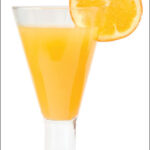 Functional constipation doesn’t have an anatomical or hormonal cause.
Functional constipation doesn’t have an anatomical or hormonal cause.
Researchers at Hong Kong Baptist University, in China studied ma zi ren wan (Hemp Seed Pill), which is a branded product. Continue reading Hemp Seed Pill to treat functional constipation →
 Researchers in Kenya and Canada studied the effects of mobile phone communication between healthcare workers and patients starting antiretroviral (antiviral) therapy in Kenya. Continue reading Using mobile phones to improve HIV drug thearpy →
Researchers in Kenya and Canada studied the effects of mobile phone communication between healthcare workers and patients starting antiretroviral (antiviral) therapy in Kenya. Continue reading Using mobile phones to improve HIV drug thearpy →
 Here are 2 Cochrane reviews that evaluate the evidence for using probiotics to treat persistent diarrhea, and the value of probiotics + rehydration to treat diarrhea.
Here are 2 Cochrane reviews that evaluate the evidence for using probiotics to treat persistent diarrhea, and the value of probiotics + rehydration to treat diarrhea.
Continue reading Review: Probiotics to treat diarrhea →
 Falls occur mainly while walking or performing concurrent tasks.
Falls occur mainly while walking or performing concurrent tasks.
Researcher in Switzerland studied whether a music-based multitask exercise program (Dalcroze eurhythmics) improves gait and balance and reduces fall risk in elderly individuals. Continue reading Dalcroze eurhythmics reduces falls in the elderly →
Uplifting.
Carrie Underwood and Vince Gill.
4/27/11 22:23 JR
 This year, 2 studies concluded that vitamin D3 is more potent. Continue reading Vitamin D3 vs D2: Comparison of potency →
This year, 2 studies concluded that vitamin D3 is more potent. Continue reading Vitamin D3 vs D2: Comparison of potency →
 Researchers at MD Anderson Cancer Center, in Houston, Texas, looked for evidence that external qigong treatment could shrink breast cancer tumors and improve quality of life in women with breast cancer awaiting surgery. Continue reading Qigong for women with breast cancer →
Researchers at MD Anderson Cancer Center, in Houston, Texas, looked for evidence that external qigong treatment could shrink breast cancer tumors and improve quality of life in women with breast cancer awaiting surgery. Continue reading Qigong for women with breast cancer →
 Researchers at Islamic Azad University, in Rasht, Iran, studied the effect of yoga on dysmenorrhea — cramping pain in the lower abdomen occurring just before or during menstruation, in the absence of other diseases. Continue reading Yoga for women with primary dysmenorrhea →
Researchers at Islamic Azad University, in Rasht, Iran, studied the effect of yoga on dysmenorrhea — cramping pain in the lower abdomen occurring just before or during menstruation, in the absence of other diseases. Continue reading Yoga for women with primary dysmenorrhea →
 Researchers in Boston tell us there are conflicting reports about an association between dietary factors and the risk of atrial fibrillation — the most common type of irregular heartbeat found in about 2.2 million Americans.
Researchers in Boston tell us there are conflicting reports about an association between dietary factors and the risk of atrial fibrillation — the most common type of irregular heartbeat found in about 2.2 million Americans.
They evaluated the potential associations between atrial fibrillation and several dietary factors. Continue reading Dietary factors and the risk of atrial fibrillation →
 CoQ10 and its activated form, ubiquinol, are popular supplements for treating or preventing a range of conditions including congestive heart failure, migraine headache, high blood pressure, and Parkinson’s disease — although none of the evidence is conclusive.
CoQ10 and its activated form, ubiquinol, are popular supplements for treating or preventing a range of conditions including congestive heart failure, migraine headache, high blood pressure, and Parkinson’s disease — although none of the evidence is conclusive.
ConsumerLab.com tested 31 products for content and dosing. Continue reading Product review: CoQ10 and ubiquinol →
 There’s a short list of food sources of vitamin D.
There’s a short list of food sources of vitamin D.
Researchers from Boston compared the bioavailability of vitamins D2 and D3 from orange juice vs capsules. Continue reading Orange juice as a source of vitamin D →
 In Japan and China, Ten-Cha is a commonly used complementary alternative medicine for allergic rhinitis.
In Japan and China, Ten-Cha is a commonly used complementary alternative medicine for allergic rhinitis.
Researchers in China studied Ten-Cha (Rubus suavissimus), which is commonly known as either Sweet Tea Extract or Chinese Blackberry Extract. Continue reading Ten-Cha to treat house dust mite allergic rhinitis →
 Researchers at Bispebjerg University Hospital, in Denmark, looked for long-term benefits of exercise in adults with clinical depression. Continue reading Limits of the benefits of exercise on depression →
Researchers at Bispebjerg University Hospital, in Denmark, looked for long-term benefits of exercise in adults with clinical depression. Continue reading Limits of the benefits of exercise on depression →
 Here’s a summary of a Cochrane review of herbals to treat stable angina — aka chronic angina.
Here’s a summary of a Cochrane review of herbals to treat stable angina — aka chronic angina.
In stable angina, chest pain occurs with activity or stress. The pain begins slowly and gets worse over several minutes before going away. Continue reading Traditional Chinese herbals to treat stable angina →
 During the meeting of the Joint Consortium of Multiple Sclerosis Centers and America’s Committee on Treatment and Research in Multiple Sclerosis, researchers at Johns Hopkins University in Baltimore, Maryland, reported that actual content ranges between 1% and 82% of what’s on the label. Continue reading False labeling casts a shadow on OTC vitamin D products →
During the meeting of the Joint Consortium of Multiple Sclerosis Centers and America’s Committee on Treatment and Research in Multiple Sclerosis, researchers at Johns Hopkins University in Baltimore, Maryland, reported that actual content ranges between 1% and 82% of what’s on the label. Continue reading False labeling casts a shadow on OTC vitamin D products →
 Fatigue is a common symptom of multiple sclerosis (MS) that challenges patients in their daily activities.
Fatigue is a common symptom of multiple sclerosis (MS) that challenges patients in their daily activities.
Researchers at the University of Illinois at Chicago compared teleconference to face-to-face, group-based fatigue self-management. The results were reported during the Joint Consortium of Multiple Sclerosis Centers and America’s Committee on Treatment and Research in Multiple Sclerosis meeting. Continue reading Teleconferencing for fatigue managment in MS patients →
 Researchers in California and Wisconsin tell us, “Sleep duration may be an important regulator of body weight and metabolism.”
Researchers in California and Wisconsin tell us, “Sleep duration may be an important regulator of body weight and metabolism.”
So, they studied changes in metabolic hormones and their potential relationship to weight loss. Continue reading Sleep to help lose weight →
 A healthy diet should be rich in vegetables and fruits, whole-grain, high-fiber foods, and fish, and should contain a small amount of saturated and trans fats.
A healthy diet should be rich in vegetables and fruits, whole-grain, high-fiber foods, and fish, and should contain a small amount of saturated and trans fats.
Researchers at Assistance Publique-Hôpitaux de Paris, in France, reviewed dietary approaches proven to be associated with lowering LDL-cholesterol. Continue reading Lowering LDL (bad) cholesterol with diet →
 “The warning that there is a potential to enhance the effect of warfarin… with cranberry juice intake is mostly based on faulty reports.”
“The warning that there is a potential to enhance the effect of warfarin… with cranberry juice intake is mostly based on faulty reports.”
That’s the conclusion by researchers at Lenox Hill Hospital, in New York City. Continue reading The final word on the warfarin-cranberry interaction? →
 FDA is warning companies to stop making MRSA claims.
FDA is warning companies to stop making MRSA claims.
Methicillin-resistant Staphylococcus aureus (MRSA) bacteria can cause an infection that’s highly resistant to some antibiotics. MRSA cause infection after they enter the body through a cut or sore.
The US Food and Drug Administration has issued 4 warning letters to companies that manufacture and market over-the-counter (OTC) drug products (including hand sanitizers) that claim to prevent infection by MRSA. Continue reading FDA warns companies to stop making MRSA claims →
Complementary and Alternative Medicine: Fair, Balanced, and to the Point
 Functional constipation doesn’t have an anatomical or hormonal cause.
Functional constipation doesn’t have an anatomical or hormonal cause.













